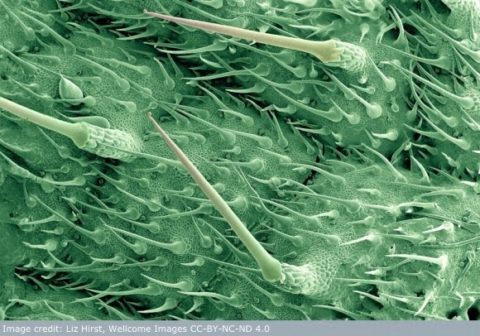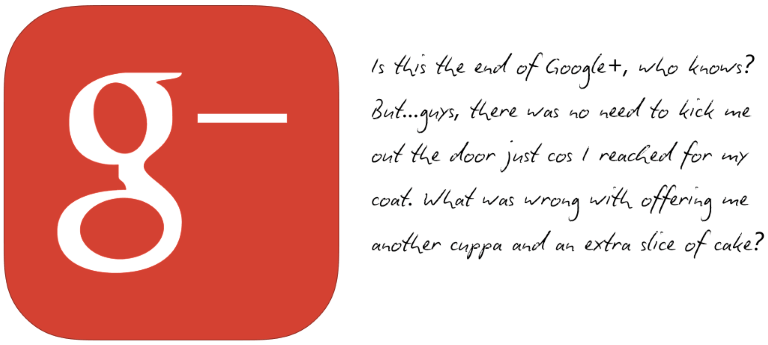I’ve always loved music, in the words of the song, “music was my first love”. It’s been with me from early childhood from the time when I’d listen to my mother trilling the songs of Dusty Springfield on washday, to my Dad doing his Big O and Frank Ifield impressions. Aged 2 or 3 I had toy instruments like glockenspiels and miniature guitars.
Then, when I was about 12, my little sister decided she didn’t want to learn to play the classical guitar she’d been given for Christmas. I was riff-happy to take it off her hands and start teaching myself chords and melodies. I’ve still got that guitar along quite a few additions that I’ve acquired in the intervening four decades or so). Music ist still with me now as I sing with a community choir (have done for 16+ years), play with a covers band (10+ years), play with a theatrical pit band (10+ years), and also do some solo performances. I am also, in my late middle age still deluded in my attempts to reinvent myself as a hybrid of David Bowie and Peter Gabriel but with none of the masks, makeup and gold lame hotpants.
We talk about music evoking emotions, about moving pieces of music, and I remember as a small child being brought to tears by the theme tune to the French children’s drama about a small boy, Sebastian, and his a Pyrenean mountain dog Belle set in Belvedere in Alpes-Maritimes, that seemed to be repeated endlessly during the long school summer holidays.
In a classic TED Talk, conductor Benjamin Zander talks of one-buttock piano playing and has his captivated audience in tears explains the emotive power of Chopin’s use of chordal suspense and musical resolution in one of his preludes. Music captivates, fascinates, makes us cry, makes us laugh, rouses and arouses us, angers us, amuses us. And, that’s even before anyone has added any words to an instrumental piece and called it a song.
But, something about music bothers me. It’s an emotional placebo, isn’t it? Am I right? The emotions we feel when we listen to music, they’re real, but they are triggered by something that is somehow not real. A song that makes you cry is triggering something emotionally, but it’s not a genuine unhappy occasion that brings one to tears, it’s a succession of notes and chords, a tune, a melody… not a real sad “event”, it’s just noises. It’s not an incident, nor an accident the likes of which would make you truly sad.
Accidents will happen as Elvis Costello taught us so evocatively, but what is it that we are feeling when we listen to music that brings us to tears or makes us want to rhythmically jump for joy? I remember an interview with Phil Collins in which he mused that when you’re feeling sad you put on a sad song for the purposes of emotional reinforcement, I assume, he meant, again it’s as if we also want to bolster our emotions with the placebo-like trigger.
Composer Igor Stravinsky once famously suggested that, “Music is, by its very nature, essentially powerless to express anything at all.” So, my hypothes is unoriginal, Stravinsky got there before me suggesting that music does not have an inherent ability to convey specific emotions or meanings and that its power lies in its abstract and non-representational nature.
It may well be that a particular piece of music reminds us of something sad, something happy, or whatever emotion is being triggered, but what did the three-year old me watching Belle and Sebastian and listening to the theme music have to be sad about? What was that tune reminding me of? Why did it make me cry? It wasn’t the words, they were in French and I didn’t learn my “schoolboy French” with Mrs Nancarrow until I was…a schoolboy…many years later. Moreover, there are definitely cultural differences too and the dirges of Western funeral music are in sharp [pardon the pun] contrast to what sound like much happier bells and percussion of the funeral music of certain other cultures.
A new clue to help explain why music is emotional emerged from medical science because of renewed interest in the therapeutical potential of psychedelic drugs such as lysergic acid diethylamide (LSD). It is well known that LSD was widely used by artists and musicians in the 1950s and 1960s and one might imagine that it isn’t just Lucy in the sky that owes her existence to the substance (allegedly), but many other songs and concept albums and their covers!
A modern placebo-controlled study of whether or not LSD enhances the emotional response to instrumental music has shown in a small group of volunteer daytrippers that the drug apparently boosts emotions such as “wonder”, “transcendence”, “power” and “tenderness”. Given that other drugs can cause or “simulate” excitement (caffeine, cocaine, amphetamines), empathy (ecstasy), relaxation (cannabis), sensual pleasure (heroin, chocolate), depression and loss of inhibitions (alcohol) it’s perhaps not a shock that another drug can affect other emotions.
Mark Changizi in his book “Harnessed”, as I’ve discussed in the blog before (November 2011), suggests (I do believe) that music moves us because it hooks into a primitive part of our brain that hears sounds in terms of our fellow apes moving around and or predators and prey coming and going. The Doppler effect lets us know whether those heavy steps are running towards us or away because of the changes in perceived pitch. So, sounds might trigger primitive emotions by hooking into the fight or flight response and setting us up to lash out or run away, perhaps.
While other sounds might be evocative of prey to be stalked or a mate to be wooed? Maybe too, there are noises of sadness that one might hear if someone is sick or dying.
“I suppose I might suggest they’re real emotions, albeit evoked by a fictional human mover,” Changizi told me. Music equates to emotion for so many of us, we love it, cannot live without it, are desperate to hear and make new music as well as keen to listen on repeat to old favourites and golden oldies. And, yet…while the emotions feel so real, they’re not as authentic as the emotions we feel when faced by those incidents and accidents, when times are good or bad, happy or sad.
Maybe “emotional placebo” is not quite the right phrase, although music is not only emotional but often healing too, an emotional rescue, you might say. It’s a stimulus that tugs at our heart’s different strings by proxy.
Perhaps music is working like a kind of emotional synesthesia. Just as those with that condition can hear colours, smell textures, for instance, perhaps music (which really is just sounds) is stimulating the emotion centres in the brain as if it is a real happy, sad or other happening that we are experiencing and so triggering the same response.
Changizi offers an additional insight, “Is a television show a proxy stimulus? Are the emotions resulting from TV fake?” he asks. Where I argue that music is more abstract than that, he suggests that “Music is just more abstract fiction than television. But still amounts to a stimulus which seems to your brain like a story of an individual moving around you doing stuff. But a more emotional story, not with the people talking.”
As an aside, my good friend James (Fentiger), pointed out to me that the melancholic musical genres in songwriting are often misunderstood. I took this to mean, without his actually saying, that: this kind of emotional music isn’t about being negative or down, it’s about recognising the human condition, our existential angst, and tugging at our heartstrings to make us enjoy the love and beauty in the world more…while we can. “A perfect description,” James reckons, “I think it’s about connecting to the realities of life, no matter how grim…it’s about relating which can be comforting, and bring hope too.”
Whatever the answer, I’d just like to say, in the words of ABBA, thank you for the music and, in the words of Phil Collins and Genesis, put another record on.
The original, much shorter, version of this this article first appeared in my column in the magazine Materials Today.

